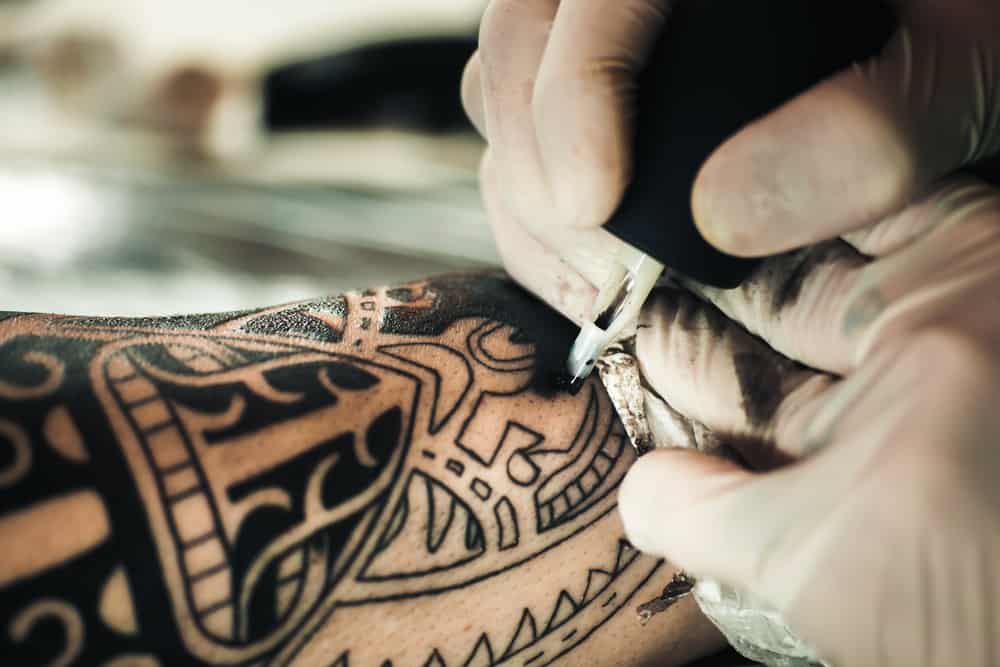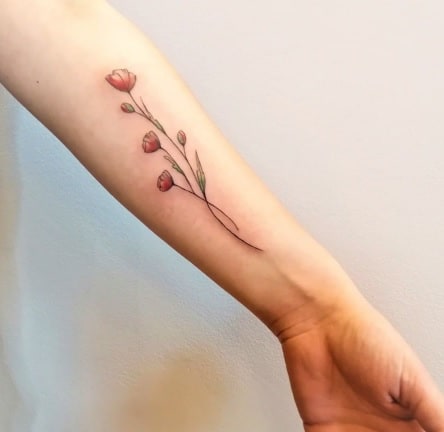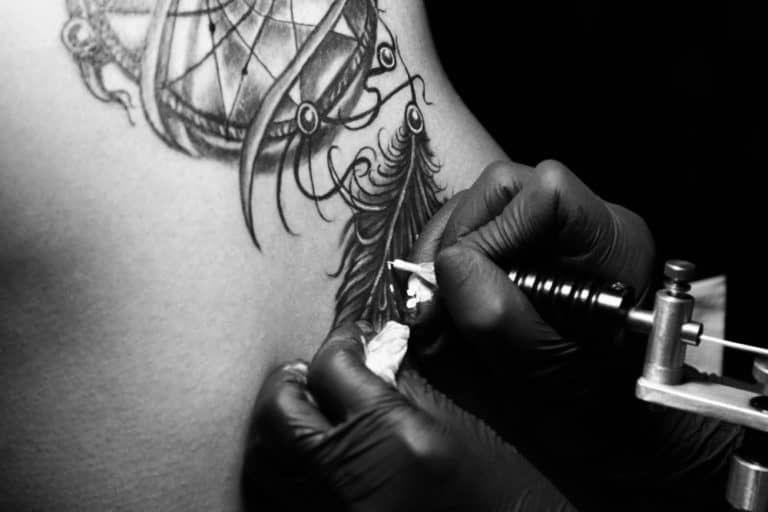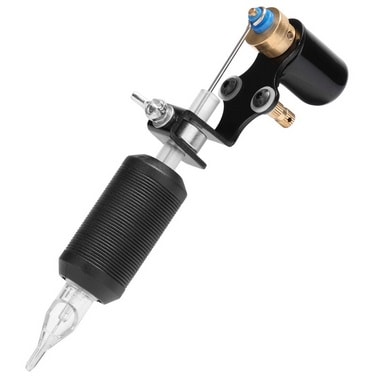Can Tattoos Reject Years Later?
Tattoos and tattoo ink are more complicated than most people realize. Part of the issues with tattoos is that it is possible to be allergic to tattoo ink, and it is possible for skin to just reject tattoo ink altogether. Fortunately, these occurrences are relatively rare, but we have all heard stories of a tattoo rejecting years after it has been applied. Are these stories true?
Tattoos can reject years after application. It is very rare for an old tattoo to be rejected by the body, but it can occur if the body develops an allergy or if the immune system is hyper-stimulated by some other extreme event such as joint replacement surgery or bone grafts.
Tattoos are mostly harmless for most people. Once a tattoo heals, it becomes a permanent fixture in the skin, and very few people encounter any problems with their tattoos, especially years after they have been applied. However, it is possible for some very specific issues to occur, leading many to wonder if old tattoos can be rejected by the skin. Let’s investigate!
Can A Tattoo Reject Years After It Is Applied?
Tattoo ink is a foreign body within the skin, and when a tattoo is applied, it always elicits an immune system response. This means that your body will try to reject the ink as soon as it enters your body, but enough of it will remain for the tattoo to last for a very long time.
Some people have various degrees of allergic reactions to tattoo ink, causing severe swelling, redness, and sometimes pain, but very few people have skin that outright rejects tattoo ink. However, we have all heard stories that make us wonder if it is possible for a tattoo to reject years after it has been applied?
The unfortunate truth is that it is possible for a tattoo to reject, even if it has been in the skin for many years. There are several reasons why this issue occurs, but it is very rare and has only ever happened to a small percentage of people with tattoos.
Tattoo ink is seen by the body’s immune system as something that must be removed. The reason why a tattoo is not completely removed and expelled by the body immediately is that the particles of ink that make up the tattoo are too large to be removed by white blood cells.
This means that the pigment from tattoo ink will remain in the skin for years, and if the tattoo is big enough and deep enough, it will never fade or disappear entirely.
The fact that tattoos remain in the skin indefinitely leaves the door open for the body to reject the tattoo. If specific changes happen in the body, it may suddenly find the tattoo to be a dangerous foreign object and react as it would to a wound or harmful material entering the body.
If the body does reject a tattoo years after it has been applied, the skin around the tattoo will become very inflamed, red, itchy, and it may become painful.
Why Do Tattoos Reject After Many Years?
The truth is that an old tattoo rejection is very rare. Most people wear their tattoos for their whole life without any issues like this, but it has happened in some unfortunate cases.
A tattoo may reject after years of being in the skin if something changes in the body to cause an immune response or if the immune system is pushed into hyper-activity. An allergy to tattoo ink can develop at any time as well, without warning, which will also cause the tattoo to reject.
The most common cause of an old tattoo rejecting after many years is developing an allergy to tattoo ink, but this is very uncommon, and the reaction that the body has to the tattoo is usually mild enough that the only symptom is slight inflammation and discomfort that subsides after a while.
Extreme cases of an old tattoo rejection typically occur after some big change in the body that causes a hyper-immune response from the body’s immune system. This could be as a result of an auto-immune disease caused by certain medications or even as a result of certain surgeries.
Antiretroviral treatment for HIV can cause a tattoo to be rejected by the body’s immune system, as can a bone or joint transplant that involves using donor bone material. These medications and surgeries cause hyperactivity in the immune system, causing the body to try and eject every present foreign object in the body, including tattoo ink.
The occurrences of a tattoo rejecting years after it has been applied are very rare, but they do happen, so it is important to be on the look out for indications of this with your tattoos.
How To Know If A Tattoo Rejects And What To Do About It
If your tattoo suddenly rejects, there are several symptoms that occur all at once. The severity of the symptoms varies, and the treatment varies as well. Depending on the underlying cause of the rejection, treatment can be simple or very extreme.
In most cases, when a tattoo rejects, it is due to an allergy. Most instances of this are very milk, and the only symptoms are mild inflammation and irritation of the skin where the tattoo is.
Severe cases of an allergy occurrence will result in symptoms including severe swelling and irritation, redness, pain, and severe discomfort of the skin. If this happens to you, it is unmissable, and you will very clearly feel the symptoms where the tattoo is.
More intense rejections can cause severe pain and redness and may even result in high fevers as the body treats the tattoo as some form of infection.
In every case of a tattoo rejection, it is important to consult a doctor as soon as possible. Treatment for mild rejections includes simple topical anti-inflammatory ointments, but more severe instances may require medication.
The most severe tattoo rejections will require the removal of the tattoo for the symptoms to fully subside. If your tattoo has been severely rejected after years of having it, consult a dermatologist as soon as possible to receive treatment specific to your case.
Conclusion
The unfortunate reality is that a tattoo can reject after years, even if there has never been a problem with it before. It is very rare, but a tattoo may be rejected by the body to an allergy or an event that causes a change in the body’s immune system function.
Only a very small percentage of tattoos reject after years of being in the skin, so try not to be too concerned. However, if you do feel some irritation or discomfort where your tattoos are, it is best to consult a GP or dermatologist as soon as you can.
Some of my favorite designs, tattoo books, and aftercare products, selected for you
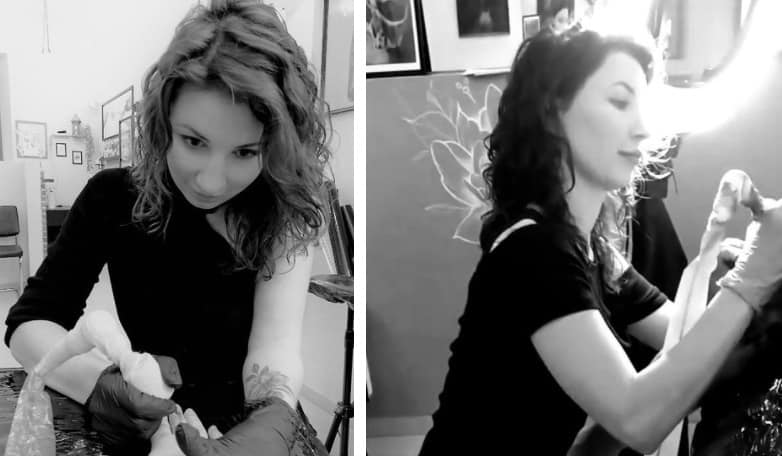
Thank you for reading my article, I hope that you have found it helpful. If you would have trouble finding ideas for your tattoo, wonder what is meaning of design that you have found or what to buy for aftercare, to make sure that your tattoo will be healing quickly and easily, here are some of my favorite products in one place, hope that this will also help.
Design and tattoo ideas
For some ideas you can have a look at those 3 books with hundreds of designs that I use with my clients, they are available on Amazon for Kindle or in classic, paper version (links below):
- Great Book of Tattoo Designs, Revised Edition: More than 500 Body Art Designs (Fox Chapel Publishing) Fantasy, Celtic, Floral, Wildlife, and Symbol Designs for the Skin by Lora Irish
- The Big Book of Small Tattoos – Vol.1: 400 small original tattoos for women and men by Roberto Gemori
- Tiny Tattoos: Over 1,000 Small Inspirational Artworks by Rebecca Vincent.
Tattoo meaning
If you would like to read more about the meaning of different tattoo styles and designs before you will decide what you would like to have, I can recommend a book that was really useful for me when I was starting my tattoo adventure – it’s “Conscious Ink: The Hidden Meaning of Tattoos” by Lisa Barretta (through the link you can find it on Amazon for around $10).
Tattoo aftercare
The skin at the tattoo site often dries out. To prevent it and speed up healing for my clients, I usually recommend one of those tattoo aftercare balms (you can find them on Amazon):

